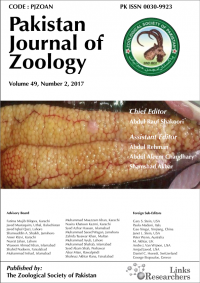Analysis of Growth, Nutrition and Economic Profitability of Gibel Carp (Carassius auratus gibelio ♀ × C. carpio ♂) Cultured in Zero-water Exchange System
Analysis of Growth, Nutrition and Economic Profitability of Gibel Carp (Carassius auratus gibelio ♀ × C. carpio ♂) Cultured in Zero-water Exchange System
Pingping Cang1, Mingming Zhang1, Guo Qiao1,Qirui Sun1, Dehai Xu3, Qiang Li1, Xinghua Yuan4 and Wenbin Liu2,*
ABSTRACT
To share on other social networks, click on any share button. What are these?










